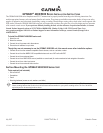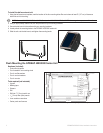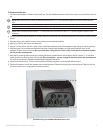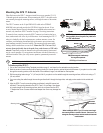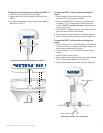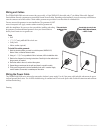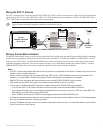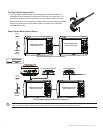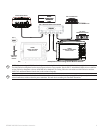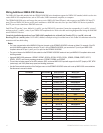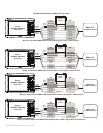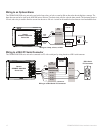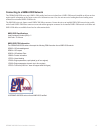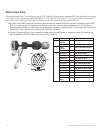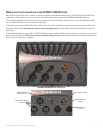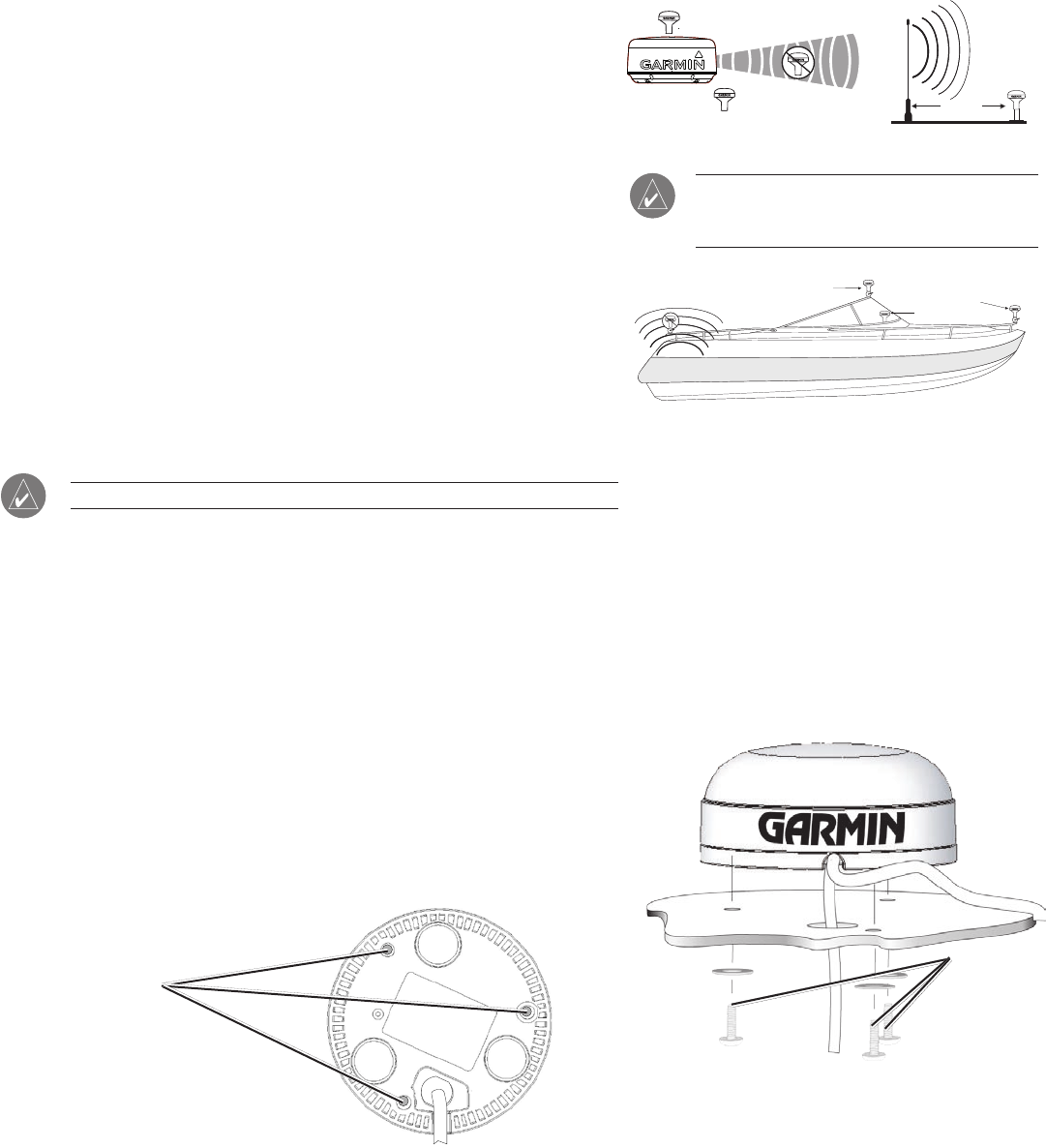
4 GPSMAP 4000/5000 Series Installation Instructions
Mounting the GPS 17 Antenna
Either ush mount the GPS 17 Antenna or install it on on any standard 1" O. D.
14 threads-per-inch marine mount. When mounting the GPS 17, the cable can be
run externally, through the mounting surface, or through the center of the marine
mount.
The GPS 17 connects to the 19-pin NMEA 0183 cable on the GPSMAP
4000/5000 series unit and provides the GPS/WAAS signal to the unit. If two
or more Garmin Marine Network chartplotters are installed and connected to a
network, only install one GPS 17 antenna. See page 5 for wiring instructions.
To ensure the best reception, mount the GPS 17 antenna in a location that has a
clear, unobstructed view of the sky in all directions. Avoid mounting the GPS 17
where it is shaded by the boat’s superstructure, a radome antenna, or mast. On
a sailboat, avoid mounting the antenna high on the mast to prevent inaccurate
speed readings caused by excessive heeling. The antenna provides more stable
readings when located nearer to water level.
Temporarily secure the antenna in the preferred mounting location and
test for correct operation. If you experience interference with other electronics, try
a different location. When you verify correct operation, permanently mount the
antenna.
Never paint the GPS 17 antenna or clean it with harsh solvents.
To ush mount the GPS 17:
1. Cut out the Flush Mount Drilling Template provided on page 11, and tape it on the selected mounting location.
2. Mark the center of each mounting hole by tapping the end of a center punch or pointed object with a hammer. If you plan to run the cable
through the mounting surface, mark the center of the additional, larger, hole indicated on the template.
3. Drill the mounting holes using a
11
/
64
" (4.5 mm) drill bit. If you plan to run the cable through the mounting surface, drill the hole using a
3
/
4
"
(19 mm) drill bit.
4. If you are routing the cable through the mounting surface feed it through the larger hole, and apply marine sealant to the outside exit
area.
5. Align the GPS 17 over the mounting holes, and fasten it using M4 screws (not
included). The mounting threads in the GPS 17 are 8.10 mm deep. Use screws
of a proper length for the mounting surface, which do not thread into the GPS
17 deeper than 8 mm. Screws which thread deeper than 8 mm may damage the
case.
Mounting holes
Bottom of GPS 17 Antenna
ABOVE - BEST
BELOW - OK
GPS Signal Interference
VHF Radio Antenna
SS BARNETT
EMI
GOOD
BEST
BETTER
Radar
EMI (Electromagnetic Interference)
from engine components
Mount the antenna at least 3 ft (1 m) away
from (preferably above) the path of any radar beam
or a VHF radio antenna.
3' (1 m)
ABOVE - BEST
BELOW - OK
GPS Signal Interference
VHF Radio Antenna
SS BARNETT
EMI
GOOD
BEST
BETTER
Radar
EMI (Electromagnetic Interference)
from engine components
Mount the antenna at least 3 ft (1 m) away
from (preferably above) the path of any radar beam
or a VHF radio antenna.
3' (1 m)
When installing the GPS 17, you can run the coax through
the mounting surface or outside of the unit. If the coax is run
through the mounting surface, seal the outside exit area with
marine sealant.
M4 screws
and washers
When installing the GPS 17, you can run the coax through
the mounting surface or outside of the unit. If the coax is run
through the mounting surface, seal the outside exit area with
marine sealant.
M4 screws
and washers



